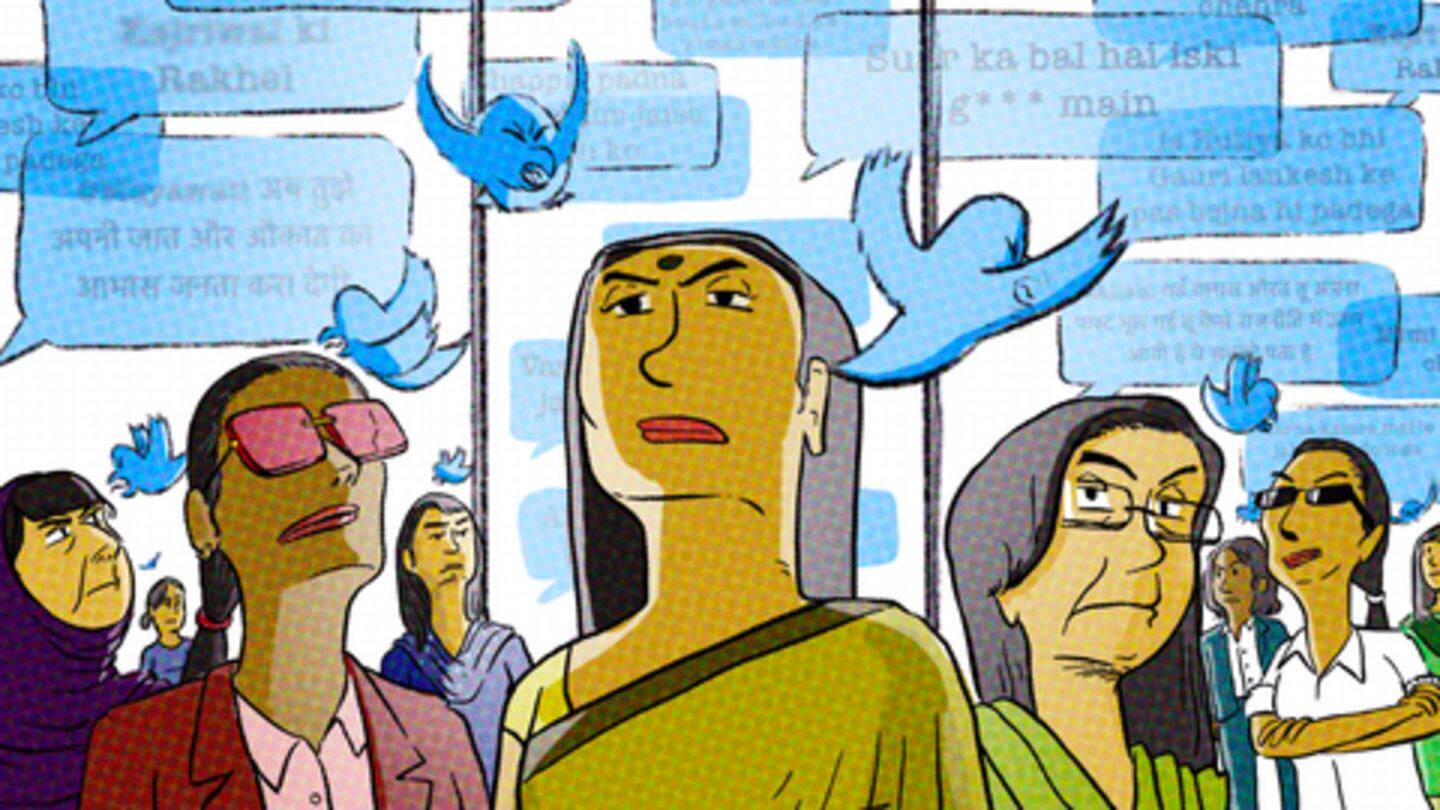
Indian women politicians face more online abuse than US/UK counterparts
What's the story
A recent study on online abuse has revealed the shocking reality of how women politicians in India are targeted on Twitter. The study, conducted by Amnesty International, found that 1 in every 7 tweets mentioning an Indian woman politician was "abusive." Women politicians in India also face more online abuse than those in the United States and the United Kingdom, the study found.
Study
Study monitored tweets mentioning Indian women politicians around 2019 elections
The study—'Troll Patrol India: Exposing Online Abuse Faced by Women Politicians in India'—was conducted by Amnesty International India in collaboration with the organization's International Secretariat. The study monitored the tweets sent to 95 women politicians over a period of three months, March-May 2019, around the 2019 General Elections. The study engaged 1,912 volunteers from 82 countries, including 1,095 from India, to decode the tweets.
Methodology
114,716 tweets analyzed for 'abusive' or 'problematic' content
These 'Decoders' analyzed 114,716 tweets for 'abusive' or 'problematic' content. 'Abusive' tweets were defined as those which "promote violence against or threaten people based on their race, ethnicity, national origin, sexual orientation, gender, gender identity, religious affiliation, age, disability, or serious disease." 'Problematic' tweets were those which did not meet the threshold of abuse, however, contained hurtful or hostile content.
Result
1 in 7 tweets mentioning women politicians abusive or problematic
Amnesty's study found that 13.8% of all tweets mentioning the 95 women politicians qualified as 'abusive' or 'problematic'. This averaged at 113 abusive/problematic tweets per woman per day, the study noted. Amnesty also compared the findings to a similar study for women politicians in the UK and the US. Reportedly, women politicians in India experienced more abusive/problematic tweets as compared to the two countries.
Other findings
Here are other key findings from the study
The Amnesty study also found that out of all abusive/problematic tweets targeting women politicians in India, one-fifth were "sexist or misogynist." Women politicians from parties other than the ruling Bharatiya Janata Party notably faced 56.7% more abuse. Women politicians from the Indian National Congress (INC) faced 45.3% more abusive or problematic content. Further, the more prominent women politicians were targeted more.
Information
Muslim women politicians faced 94.1% more online abuse
Religious or caste identities were also targeted, the study found. Muslim women politicians received 94.1% more ethnic or religious slurs as compared to those from other religions. Meanwhile, women politicians from marginalized castes received 59% more caste-based abuse as opposed to those from other castes.
Twitter’s response
Being free of abuse, spam our top priority: Twitter
Amnesty International India had shared these findings with Twitter India in November last year. In response, the micro-blogging site said that "building a Twitter free of abuse, spam and other behaviors that distract from the public conversation is one of their top priorities." Twitter said it has "made strides creating a healthier service," adding that it's investing in proactive technology to improve user experience.
Quote
Frustrating when abusive content 'doesn't violate Twitter's norms': Kavita Krishnan
However, women politicians in India termed this a pretense. Kavita Krishnan of the Communist Party India (Marxist-Leninist) Liberation said it's "frustrating" when one reports abusive content online, but neither Twitter nor Facebook acknowledges it as content violative of their norms. "These platforms should either get rid of their reporting business or stop pretending that they have these norms," Krishnan said.
Quote
It's Twitter's responsibility to ensure it's safe for women: Atishi
Aam Aadmi Party's Atishi said, "It's not the role of each woman to individually ensure her safety in public spaces...If a woman is accessing social media on Twitter, it is the platform's responsibility to ensure that it's a safe and secure space for women."
Quote
'If they don't like my opinions, they call me 'whore''
BJP's Shazia Ilmi also said, "More women should be entering politics. But the price that I pay is too much for what I choose to do. The price includes being trolled incessantly." She said, "If they (the trolls) don't like my strong opinions, they do not remark on my work but call me a 'whore' in every language that is used in India."
Information
Regular abuse targeting women has silencing effect: Amnesty Director
Amnesty International India Executive Director Avinash Kumar noted, "While over the years [Twitter] has evolved into an indispensable tool for political engagement, campaigning, and activism, women are regularly and relentlessly subjected to abuse on the platform, which has a silencing effect on them."